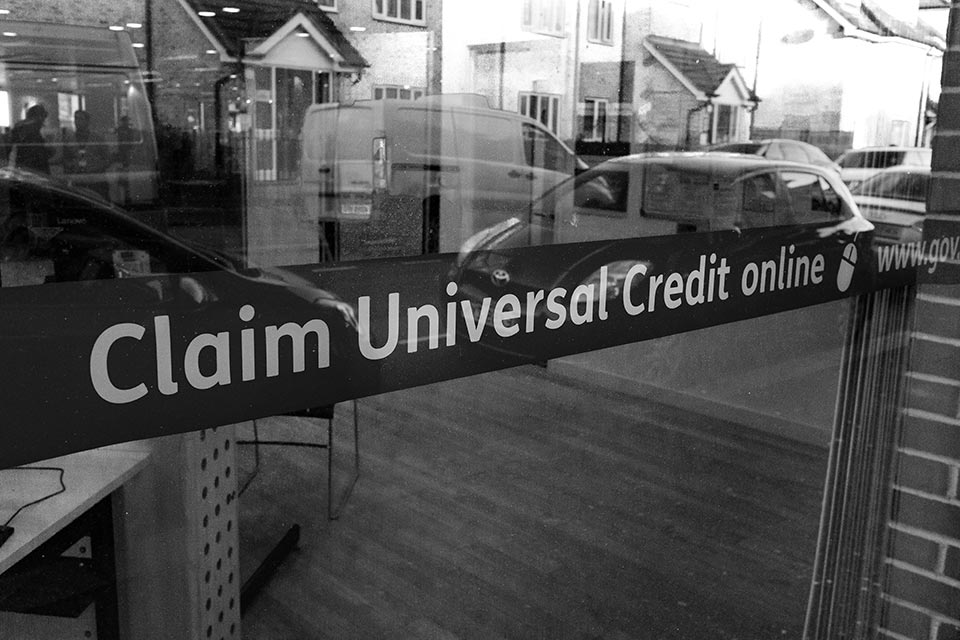Disability premiums in legacy benefits are not replicated in universal credit
After false starts and long delays, the government is now pushing ahead to transfer all existing claimants of older means-tested benefits onto universal credit. The Department for Work and Pensions (DWP) resumed the managed migration process to achieve this in May.
Claimants of working age who are getting one or more of these “legacy benefits” (such as income-related employment and support allowance and housing benefit) will at some point be told these will stop, and that they must claim universal credit.
They will be sent a letter advising them that they must start the process to claim the benefit within three months. The government’s aim is to complete the migration of all affected claimants by December 2024.
Claimants could go through managed or natural migration. The latter refers to when a change of circumstances forces someone to claim universal credit. For example, if a claimant moves to a rental property in a different local authority area, they would not be able to make a new claim for housing benefit but would have to claim universal credit instead to get help with housing costs.
The minister’s approach may indicate a ‘get it done’ rather than a ‘get it right’ approach to universal credit migration
Better or worse off?
Professionals working with clients claiming means-tested benefits need to be aware of the potential risks of “voluntary migration”, where some claimants may choose to claim universal credit in the belief that they will be better off.
Indeed, the DWP has said that its “modelled estimates” suggest that around 1.4 million households could be better off by migrating immediately.
However, advice workers are worried that DWP staff are encouraging customers to move onto universal credit, without first helping them check if migration would leave them better or worse off.
A government minister has even said that the Help to Claim scheme – dedicated to assisting people with universal credit applications – cannot be used to first advise claimants whether they should claim the benefit or not.
Given that Help to Claim is run by Citizens Advice, the largest provider of independent advice services across the UK, the minister’s approach may indicate a “get it done” rather than a “get it right” approach to universal credit migration.
Of the remaining 2.6 million people on legacy benefits, nearly half are receiving employment and support allowance (ESA). By implication, a large proportion of those who have to be transferred to universal credit will have a disability.
In the longer term, many of them will be worse off, mainly because the disability premiums in legacy benefits are not replicated in universal credit.
Protection – for the short term
There is transitional protection intended to make up for this loss at least in the short term. This means claimants receiving a disability premium get a top-up of normal benefit rates to ensure that the amount they get when they transfer to universal credit is as much as their former entitlement.
Although this protection is welcome, the level of transitional protection will not be uprated (unlike general benefit rates), so its value will diminish over time. In addition, certain changes in the claimant’s circumstances will mean transitional protection is eroded or lost completely.
And there will be disabled people who miss the protection entirely, as it applies only to claims made via managed migration. So, if a disabled claimant is forced to migrate because of a change of circumstances or chooses to move, they will not get the top-up.
Without walking a client through a full check, it is difficult to predict for sure whether they will be better or worse off under universal credit.
Certain circumstances can, however, indicate a potential increase to or loss of income.
Claimants who could be better off claiming universal credit include:
- ESA support group claimants who are not getting the severe disability premium
- In-work households receiving housing benefit only or working tax credit and housing benefit; they are likely to have higher entitlements as universal credit is withdrawn less quickly as earnings rise than legacy benefits
- People who do not work enough hours to receive working tax credit as universal credit may be paid on top of wages, regardless of hours worked.
Types of claimant who might see a lower entitlement include:
- People getting ESA that includes the severe disability premium and/or enhanced disability premium
- Households with the lower disabled child addition in legacy benefits
- Self-employed people who are subject to the minimum income floor, once the 12-month grace period that allows for lower earnings during a start-up period has ended.
- There are a number of factors and issues at play in whether a client is better off waiting for their universal credit migration letter from DWP or applying for the benefit before then. Once a claimant leaves legacy benefits, they will be unable to return to them.
As so often is said in these pages, they should seek advice from an experienced welfare benefits adviser before making any final decision. n
More information
Disability Rights UK. Should I stay or should I go? Get independent advice before you claim universal credit. 2022. https://tinyurl.com/7kfzvuwx





